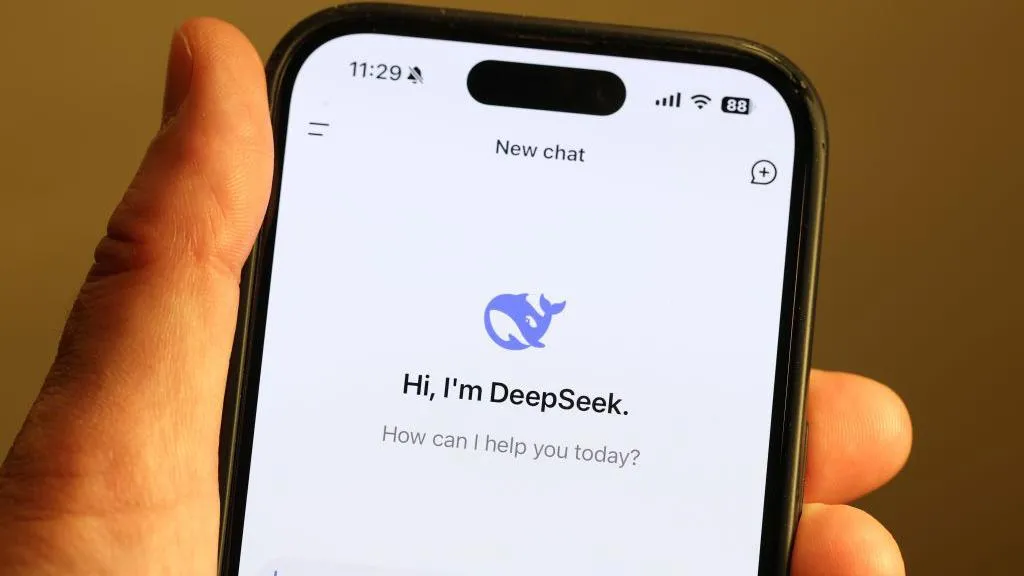South Korea has banned new downloads of China’s DeepSeek AI chatbot, citing concerns from the country’s personal data protection watchdog.
The government agency stated that DeepSeek will be reinstated for South Korean users once necessary “improvements and remedies” are made to ensure compliance with the nation’s data protection laws.
DeepSeek surged in popularity in South Korea after making global headlines, topping app store charts with over a million weekly users.

However, its rapid rise also drew scrutiny worldwide, with several countries imposing restrictions over privacy and national security concerns.
On Saturday evening, South Korea’s Personal Information Protection Commission confirmed that DeepSeek had been removed from Apple’s App Store and Google Play. This followed a decision by multiple South Korean government agencies to ban employees from downloading the chatbot on work devices.
South Korea’s acting president, Choi Sang-mok, described DeepSeek as a “shock” with potential implications for industries beyond AI.
Despite the suspension of new downloads, existing users can continue using the app or access it via DeepSeek’s website. The chatbot’s launch late last month sent shockwaves through the tech industry, financial markets, and U.S. confidence in its AI leadership.
READ ALSO: Accidental Airstrike Wipes Out Family of 6 in Katsina
DeepSeek’s rapid ascent has sparked regulatory concerns across various regions. Taiwan and Australia have prohibited its use on government devices, while Italy’s data regulator—having briefly banned ChatGPT in 2023—has imposed a similar restriction on DeepSeek until privacy concerns are addressed.
In the U.S., lawmakers have proposed a bill to ban DeepSeek from federal devices over surveillance risks. Meanwhile, Texas, Virginia, and New York have already implemented similar restrictions for state employees.
DeepSeek’s large language model (LLM) reportedly offers reasoning capabilities comparable to leading U.S. models like OpenAI’s GPT-4 but operates at a fraction of the cost. This has raised questions about the billions of dollars being poured into AI infrastructure in the U.S. and beyond.
(BBC)
Follow the Parallel Facts channel on WhatsApp: https://whatsapp.com/channel/0029VaCQSAoHgZWiDjR3Kn2E









Leave a Reply